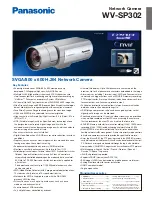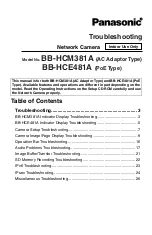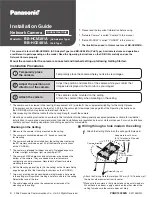
8/20q Fibre Channel Switch command line interface guide 229
Operands
logging
Prompts you in a line-by-line fashion to change the event logging configuration parameters
described in
Table 56
. To configure all system parameters, omit the operand. For each
parameter, enter a new value or press
Enter
to accept the current value.
Table 56
Event logging configuration parameters
Parameter
Description
LocalLogEnabled
Enables (
True
) or disables (
False
) the saving of log information
on the switch. The default is
True
.
RemoteLogEnabled
Enables (
True
) or disables (
False
) the recording of the switch
event log on a remote host that supports the syslog protocol. The
default is
False
.
RemoteLogHostAddress
The IP address (version 4 or 6) or DNS host name of the host that
will receive the switch event log information if remote logging is
enabled. The default is
10.0.0.254
.
Operands
ntp
Prompts you in a line-by-line fashion to change the NTP server configuration parameters
described in
Table 57
. To configure all system parameters, omit the operand. For each
parameter, enter a new value or press
Enter
to accept the current value.
Table 57
NTP server configuration parameters
Parameter
Description
NTPClientEnabled
Enables (
True
) or disables (
False
) the Network Time Protocol
(NTP) client on the switch. This client enables the switch to
synchronize its time with an NTP server. This feature supports NTP
version 4 and is compatible with version 3. An Ethernet
connection to the server is required and you must first set an initial
time and date on the switch. The synchronized time becomes
effective immediately. The default is
False
.
NTPServerDiscovery
NTP boot method:
•
1—Static
•
3—DHCP (Dynamic Host Configuration Protocol)
•
3—DHCP version 6
The default is
Static
.
NTPServerAddress
The IP address (version 4 or 6) or DNS host name of the NTP
server from which the NTP client acquires the time and date. The
default is
10.0.0.254
.
Operands
timers
Prompts you in a line-by-line fashion to change the timer configuration parameters described in
Table 58
. To configure all system parameters, omit the operand. For each parameter, enter a new
value or press
Enter
to accept the current value.
Summary of Contents for 8/20q
Page 14: ...14 About this guide ...
Page 20: ...20 Command line interface usage ...
Page 24: ...24 User account configuration ...
Page 38: ...38 Network configuration ...
Page 90: ...90 Connection security configuration ...
Page 100: ...100 Device security configuration ...
Page 104: ...104 RADIUS server configuration ...
Page 110: ...110 Event log configuration ...
Page 130: ...130 Simple Network Management Protocol configuration ...
Page 322: ...322 Command reference ...
Page 332: ...332 Index ...
















































